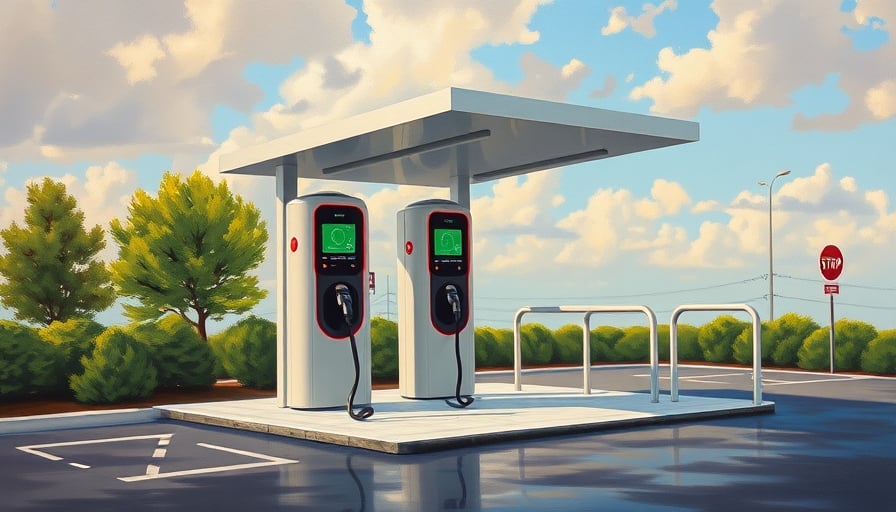EnBW expands its electric‑mobility footprint while addressing security challenges
EnBW Energie Baden‑Württemberg AG, one of Germany’s largest integrated energy suppliers, announced a series of initiatives that reinforce its position as a pioneer in the transition to a low‑carbon grid. The company has added new high‑power charging parks in North Rhine‑Westphalia and Baden‑Württemberg, upgraded a solar park in Aach with a large battery bank, and highlighted the growing need to protect the rapidly expanding charging infrastructure from theft.
1. New high‑performance charging parks
On 15 October 2025, EnBW disclosed the construction of three new high‑performance charging (HPC) parks. The first two, located in Duisburg‑Neumühl and Büren‑Geseke, each host 12 fast‑charging stations. The third installation in Ellwangen (Jagst) will accommodate 10 HPC units. All three sites are strategically positioned to serve both commercial and residential customers, with Duisburg‑Neumühl benefiting from a direct connection to the A42 motorway and an integrated 18.55 MWp solar roof.
The investment demonstrates EnBW’s commitment to electrifying the transport sector. By offering fast charging in key transport corridors, the company aims to reduce range anxiety and promote electric‑vehicle (EV) adoption across the German market.
2. Solar‑plus‑storage in Aach
Earlier in October, EnBW commissioned a 14.2 MWp photovoltaic plant in Aach, located in the district of Konstanz. In a move that showcases the company’s emphasis on flexible energy supply, the plant was soon equipped with a 2.34 MWh battery bank. The storage system, delivered by the start‑up Encore | DB, consists of 360 modules that can be compared to the batteries found in approximately 40 electric cars.
The battery not only smooths the output of the solar farm but also provides grid support services such as frequency regulation and peak shaving. EnBW’s ability to integrate storage into its renewable projects signals a shift toward a more resilient and dispatchable renewable portfolio.
3. Combating cable theft at charging stations
The surge in EV charging infrastructure has attracted unwanted attention. According to an article from the Greek publication Naftemporiki dated 14 October 2025, EnBW recorded more than 900 cable theft incidents across 130 charging points in Germany during the first nine months of 2025. While the company has not disclosed the financial impact, the incidents highlight a growing security risk for utilities worldwide.
EnBW’s response includes stricter monitoring of its charging networks, the installation of tamper‑evident cable guards, and collaboration with local law enforcement. By proactively addressing theft, the company safeguards its investment in infrastructure and ensures uninterrupted service for EV users.
4. Market context
EnBW’s activities come at a time when the global EV‑charging app market is projected to reach USD 137.77 billion by 2031, according to a Valuates report released on 13 October 2025. The rapid expansion of digital platforms that connect drivers to charging stations, streamline payments, and optimize routes underpins the demand for reliable physical charging assets.
In Germany, where EnBW operates a full‑service electricity and gas portfolio, the integration of renewable generation, energy storage, and EV charging reflects a broader industry trend toward a circular, low‑emission energy ecosystem.
5. Outlook
With a market capitalization of roughly €21.99 billion and a price‑to‑earnings ratio near 49.8, EnBW demonstrates robust financial footing to sustain its expansion plans. The company’s focus on high‑density charging parks, solar‑plus‑storage projects, and security measures positions it as a leader in the evolving utilities landscape.
As electric mobility and renewable generation continue to grow, EnBW’s strategic investments and risk mitigation efforts are likely to serve as a blueprint for other utilities navigating the transition to a cleaner, digitally integrated energy future.
